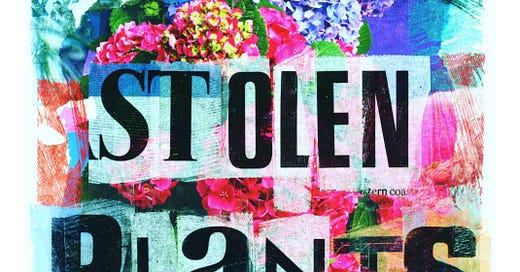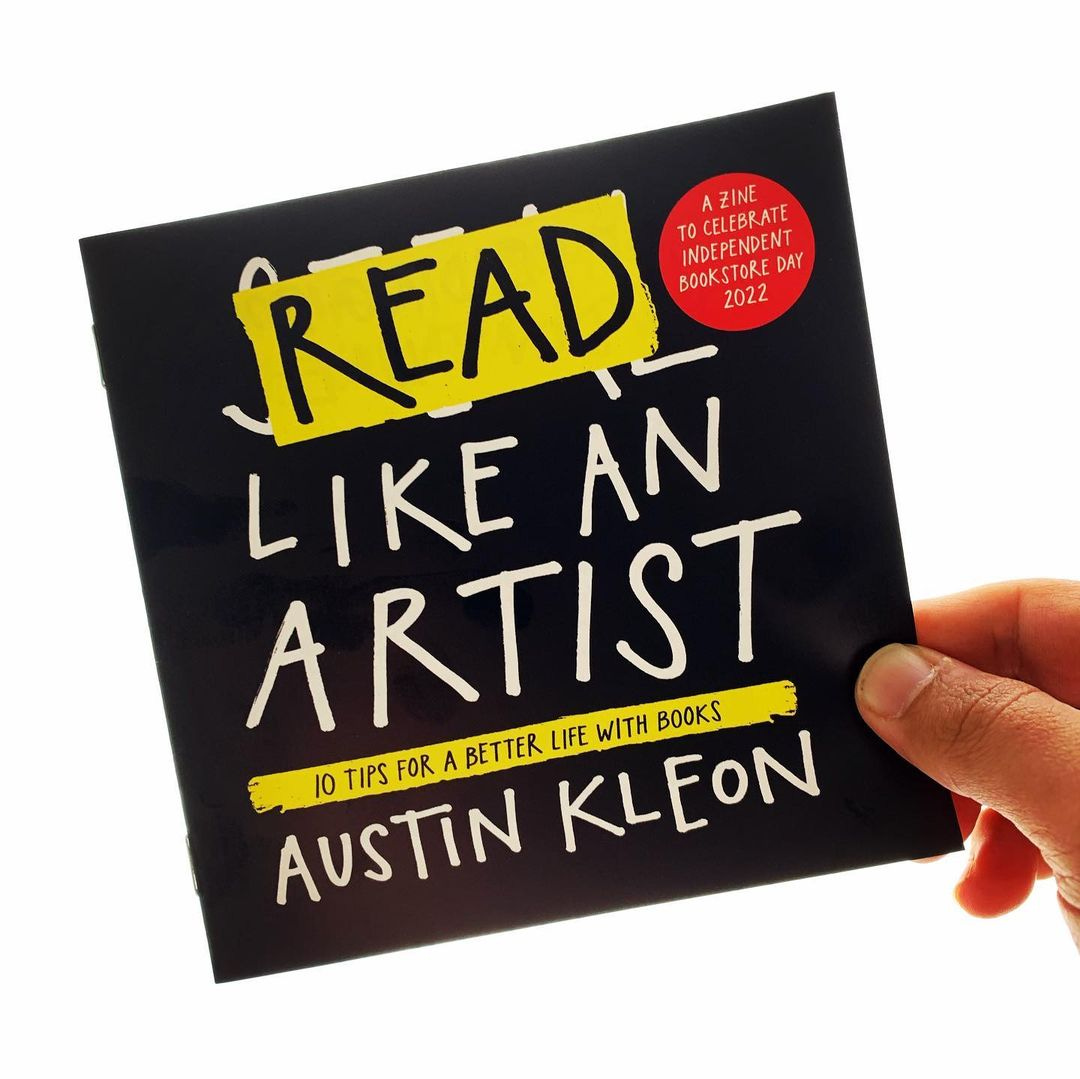Stolen plants always grow
10 things worth sharing: myths about publishing, life after pop stardom, sewing at the end of the world, gardening wisdom from Beatrix Potter, and more...
In Tuesday’s letter I shared how I make color brush pens — thanks for all your art supply hacks and color tips in the comments! Truly my favorite place on the internet.
Here are 10 things I thought were worth sharing this week:
After writing about “proplifting” — the gardening practice of swiping a few leaves off a plant to propagate a new plant elsewhere — and wondering whether Steal Like an Artist would’ve been different had I been as interested in gardening then as I am now, a reader sent me this folk wisdom from Beatrix Potter: “Stolen plants always grow.”
I tore through Dan Charnas’s book Dilla Time: The Life and Afterlife of J Dilla, the Hip-Hop Producer Who Reinvented Rhythm. It hit upon so many of my interests — music, theft, stuttering, the creative (mis)use of technology, genius vs. scenius — but I also agree with SFJ that it “might read like a brilliant two-hundred-fifty-page book trapped inside a solid four-hundred-page one.”
The 9 biggest myths about nonfiction trade publishing. A sobering list from Summer Brennan, so good my agent added it to his resources page. (A few years ago, I gathered my own thoughts on publishing.)
“I wanted adulation and got it, but I had to die to survive it.” Pop stars on life after the spotlight moves on. (Stories from Nick Daerden’s forthcoming book, Exit Stage Left: The Curious Afterlife of Pop Stars.)
I’m fascinated by the way money can both bring stability and instability into our lives, so I want to read a philosophical book about money and its impact on community and culture. Here are a few good leads Twitter gave me: Jacob Goldstein’s Money: The True Story of a Made-Up Thing, Georg Simmel’s The Philosophy of Money, Margaret Atwood’s Payback: Debt and the Shadow Side of Wealth, Jacob Needleman’s Money and the Meaning of Life, and David Graeber’s Debt: The First 5000 Years.
Learning to sew at the end of the world. (Thanks to Ann Friedman. Related reading: Knitting at the end of the world.)
Part of the fun of a new obsession (like I have with my bicycle) is finding Venn diagram overlaps with your other obsessions. For example: this week I (re)discovered Saul Steinberg was a cyclist, courtesy of this wonderful chronology. (According to Deidre Bair’s biography, he’d ride into town every day, buy a newspaper, and pedal home along the ocean, thinking and free-associating. Sounds good to me.)
Ear candy: I’m listening to J Dilla essentials (Q-Tip’s “Breathe and Stop” is one of my all-time favorite beats), his instrumentals, and every song mentioned in Dilla Time, and 3 albums Charnas recommends for Dilla newbies: Slum Village’s Fantastic, Vol. 2, Common’s Like Water for Chocolate, and D’Angelo’s Voodoo, which is one of my all-time favorite records, as is Dilla’s own classic, Donuts. (Speaking of records: Vinyl Nation, a documentary about the resurgence of vinyl, is now available worldwide.)
Some upcoming events here in Austin, TX: I’m interviewing local doctor/cartoonist Grace Farris about her new book, Mom Milestones, next Tuesday night at 7PM, April 26 at Bookpeople. (We’ll both be signing.) Then on Saturday, April 30, I’ll be doing some events around town for Independent Bookstore Day.
How to have fun with the edges of your books.
Thanks for reading! This newsletter is a reader-supported publication. The best way to support my work is to buy my books, hire me to speak, shop for some of my favorite gear (I get a cut), or become a paid subscriber and help keep Fridays free for everyone:
xoxo,
Austin







Interesting that you mentioned Georg Simmel’s “The Philosophy of Money” today. I’m reading it right now and it is great. I wholeheartedly +1 this recc!
The Seth (Godin) recommended Debt as one of his favorite audiobooks.